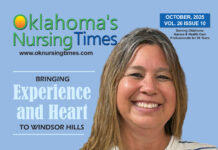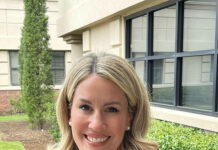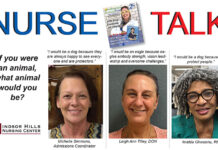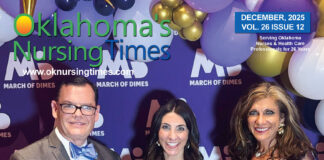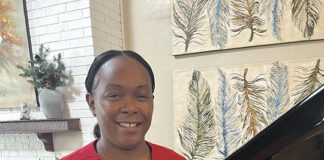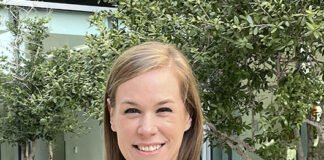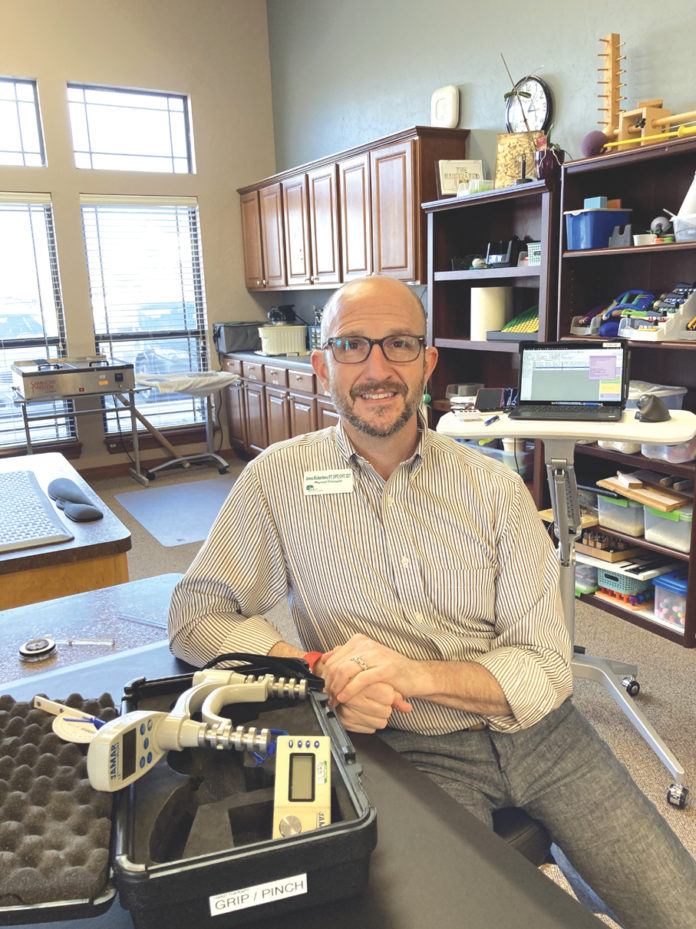
When Covid-19 hit James Richardson, it hit him hard. Now, the 45-year-old physical therapist is using his experience with the virus to help others.
A distance runner who also regularly lifts weights, the Oklahoma City resident didn’t fit any of the traditional risk factors associated with Covid-19. But shortly after a work exposure at his clinic in March, the virus had him fighting for his life.
Following his recovery, he’s now participating in antibody research at the Oklahoma Medical Research Foundation. (story continues below)

Great opportunity to work with us with excellent benefits, including great employer matching 401K,
Tuition Reimbursement, Christmas bonus and the opportunity for quarterly bonuses!
COMMUNITY HOSPITAL
INTEGRIS NETWORK
NORTHWEST SURGICAL HOSPITAL
INTEGRIS NETWORK
Leadership Opportunities:
· System Chief Nursing Officer
· Administrative Director, Revenue Cycle Management
· RN Manager, Pre-Admission Testing – South
· RN Lead, Pre Op/PACU – Northwest Surgical Hospital
· RN Director, Education
South Campus:
· RN, Employee Health – Full Time
· RN, Quality Improvement Specialist – Full Time
· RN, Med Surg Nights – Full Time – $10,000 SIGNING BONUS
· RN, Med Surg ICU Nights – Full Time – $10,000 SIGNING BONUS
· RN, Circulator – Full time – $10,000 SIGNING BONUS
· RN Pre Post/Minor Procedures – Full Time
· RN Pain – Full Time
· RN Pain/GI – Full Time & PRN
· RN, ER – PRN
North Campus:
· RN, Pre Op/Phase II Recovery – Full Time – $3,000 SIGNING BONUS
· RN, Med Surg Days – Full Time – $7,500 SIGNING BONUS
· RN, Circulator – Full Time – $10,000 SIGNING BONUS
· RN, Pre-Admission Testing – Full Time – $3,000 SIGNING BONUS
· RN, PACU – PRN
· RN, Med Surg – PRN
Northwest Surgical Hospital:
· RN Circulator – Full Time – $10,000 SIGNING BONUS
· RN, Med Surg – PRN Days & Nights
· RN, PACU – PRN
· RN, Pre Op – PRN
We are also looking for:
· Surgical Techs
· Surgical Orderly/Materials Assistant
· Respiratory Therapists
· Pharmacy Technicians
· Materials Management Tech
· Unit Secretary
VIEW ALL OPENINGS:
www.communityhospitalokc.com/careers
Community Hospital/Northwest Surgical Hospital complies with applicable Federal civil rights laws and does not discriminate on the basis of race, color, national origin, age, disability, or sex.
Community Hospital/Northwest Surgical Hospital is a facility in which physicians have an ownership or investment interest.
The list of physician owners or investors is available to you upon request.
“It was such a miserable experience. If there’s anything I can do to help others avoid that or experience it less severely, that’s what I’m going to do,” he said.
Infected by a patient in his physical therapy clinic, Richardson soon developed a fever of almost 103 degrees and blacked out repeatedly. He was admitted to the emergency room at Integris Baptist Medical Center and moved to isolation in the hospital’s Covid unit.
“It felt like my chest was tightening more with every breath, like I had a constrictor snake wrapped around me,” he remembered. For a week in the hospital, he cycled in and out of consciousness.
The low point came when his oxygen levels crashed, and the ventilator team was called. “I was able to muster the word ‘no’ when they asked to vent me,” he said. “I was afraid of the long-term consequences.”
Fortunately, Richardson pulled through without the ventilator. But nine months later, he continues to feel the lingering effects of the virus.
“I’m still dealing with things that don’t feel right. I can’t breathe well, and some of the cognitive effects are scary,” said Richardson. “I find myself trying to explain something to a patient or a colleague and can’t find the words; I just want to slap myself on the back of the head and yell, ‘Spit it out already!’”
Once he’d cleared the virus from his body for a sufficient period, Richardson began donating plasma to the Oklahoma Blood Institute for use in treating other Covid-19 patients. He also volunteered for research at OMRF, where scientists are studying his antibodies as part of a two-year federal grant.
“Our goal is to understand people’s differing immune responses to the virus,” said Linda Thompson, Ph.D., one of the leaders of the project at OMRF. Using blood donated by volunteers, the scientists are looking for biological clues that might identify those individuals most likely to experience a severe response to the virus.
This information can be used to develop potential treatments and to inform vaccine design and improvement over the coming years.
“Someone like James volunteering isn’t just valuable,” said Thompson. “It’s crucial in helping us understand the effects of antibodies in fighting this virus.”
When Richardson learned what taking part in the OMRF research entailed, he says the decision to participate was easy.
“All I need to do is show up to help and give a little blood?” he said. “Count me in!”
If you’ve recently recovered from Covid-19 and are interested in volunteering for OMRF’s antibody research study, please call 405-271-7221



